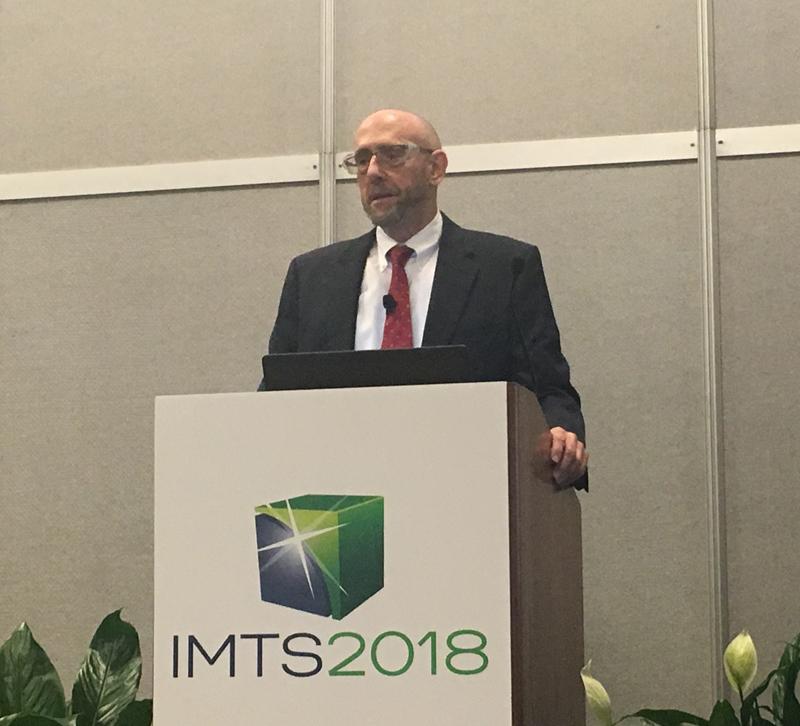One of the main arguments for tariffs involves improving U.S. manufacturing. In theory, if it costs too much or the same to manufacture offshore, then companies would move production back to the U.S. The problem, says Harry Moser of the Reshoring Institute, is that tariffs often pick clear winners and losers, and they can anger trading partners. It's not possible to contain a tariff's damage, and they usually have unexpected and unintended consequences.
But tariffs aren't necessary for bringing back manufacturing the U.S.
The Reshoring Initiative, founded in early 2010, is an industry group led by Moser that tracks companies returning manufacturing jobs to the U.S. through press and news releases. The initiative also connects manufacturers with local suppliers and helps them determine the long- and short-term costs of manufacturing to see whether domestic production would actually be more cost-effective in the long term. Additionally, suppliers can also find help in meeting manufacturers' needs.
When tracking the data, the initiative groups them into three categories: reshoring (domestic businesses moving manufacturing back to the U.S.), foreign-direct investment (international businesses that move manufacturing business to the U.S. and kept from offshoring (jobs saved when companies reconsidered.
Moser gave a press preview of his talk on reshoring yesterday at the International Manufacturing Technology Show in Chicago on the economic benefits of increasing U.S. manufacturing. Here are the highlights.
Reshoring myths busted
In his talk, Moser highlighted a few myths he sees in the media and addressed common misconceptions about reshoring.
One of the most prominent is that few manufacturing jobs can return to the U.S., but the actual number is more than a few. In 2017 alone, Moser counted 171,000 manufacturing jobs (both reshoring and foreign-direct investment) would be added in the U.S. Moser's data, however, only counts for announcements. As it usually takes a few years for companies to build factories and hire a workforce, it's hard to know if all these jobs were eventually created and filled. That being said, it's true that manufacturers are definitely interested in manufacturing in the U.S. again.
Another myth surrounds automation, which many believe will kill manufacturing jobs anyway, but as many experts have said, automation does have the capacity to create more jobs. Manufacturers will still need skilled workers to run the machines and be able to fix problems. Whether the U.S. has the skilled workforce at the moment is another concern.
More goods production could also go along way to helping the U.S. trade deficit. Many believe the trade deficit causes the low savings rate in the U.S., but Moser says it's actually the reverse.
What the U.S. needs to be competitive
So what needs to change in the U.S. in order to make it more competitive for manufacturing? Moser outlined a few key practices that could turn things around.
Having a skilled workforce is also crucial to being competitive. As many believe manufacturing jobs are difficult to find or going away altogether, many high schools don't talk about vocational training programs or recommend them to students. For some, there's a stigma attached with manufacturing work, even though the work usually pays well and has been a staple of the middle class.
In terms of taxes, Moser recommends a 15 percent corporate tax rate as well as a 15 percent value-added tax (VAT). The U.S. lowered its corporate tax rate to 21 percent late last year, but there's been little talk about creating a VAT, which many countries and trading partners use today.
Healthcare costs would also need to be cut by about 30 percent. In his presentation, Moser cited Germany as a possible model for healthcare. There's been little serious talk of healthcare reform in the U.S. as of late.
Moser also cited a decreased value of the dollar and deregulation as tools for competitiveness, though he did not specify what deregulation would look like.
We hope to be following up with Moser on manufacturing reshoring later this week. So tell us: What questions do you have about U.S. manufacturing? Share with us in the comments, and we'll investigate.







